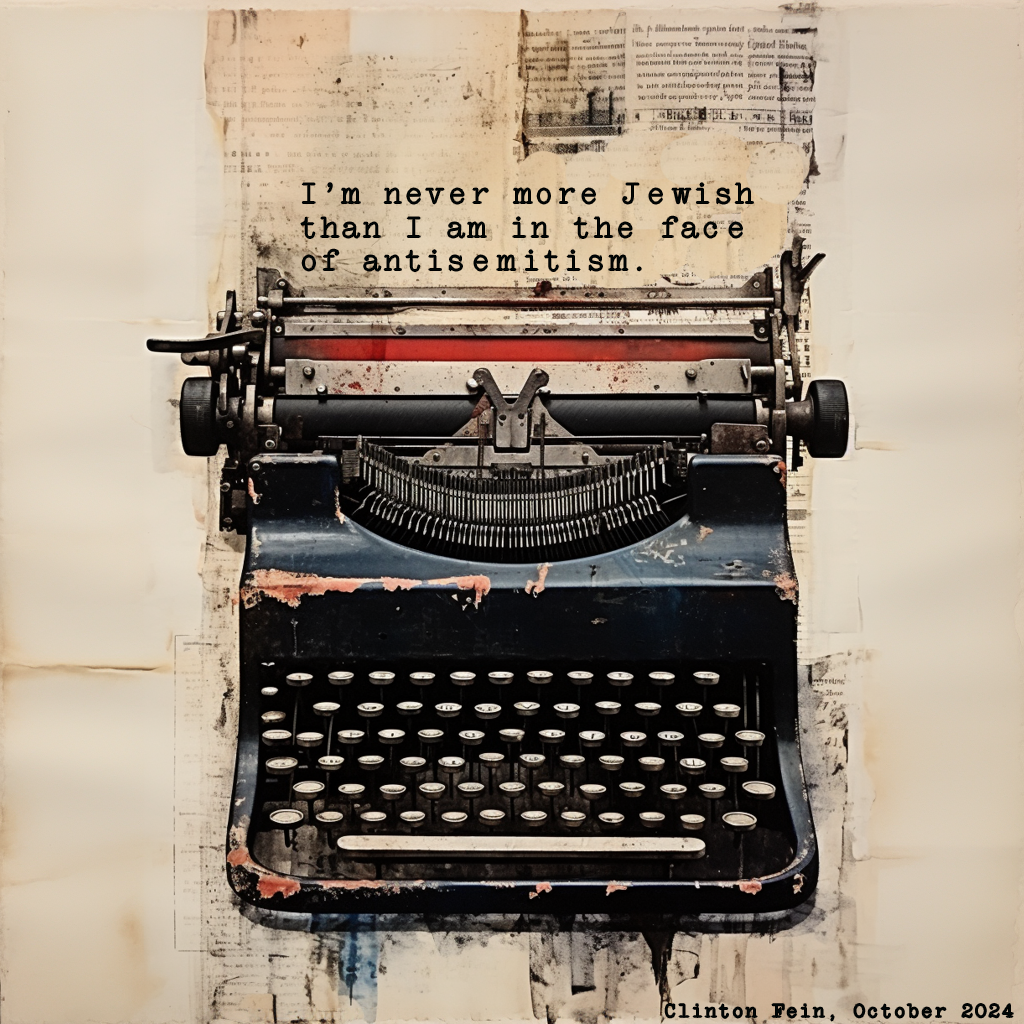
At the Intersection
Intersectionality, the understanding of how various social identities and systems of oppression intersect and overlap, is fundamentally ingrained in the way the left operates. This framework acknowledges that people’s experiences are shaped by a multitude of factors, such as race, gender, sexuality, and class. For the left, recognizing these intersections has been essential because it allows for a more nuanced understanding of social issues. It emphasizes that different forms of discrimination are interconnected and cannot be addressed in isolation. This approach fosters solidarity among diverse groups, fostering a more inclusive and empathetic movement.
Well, it used to.
It’s impossible to deny the incoherent, inconsistent antisemitism that has permeated the far left. This is evidenced by so many who are unwilling to denounce the murderous brutality of Hamas and, worse, excuse it in the name of Palestinian solidarity or frame it as justifiable resistance to human rights abuses by Israel.
It is frustrating for those of us who appreciate the promise and cohesive power of intersectionality, and it has caused some of us to reflect on and reset our expectations regarding allies.
Unfortunately, “woke,” which once meant an awareness of the unconscious biases begotten by white privilege and the generational impact of institutionalized racism, has become a meaningless, derogatory catch-all phrase for anything “liberal” or “progressive” that people don’t like or are threatened by. (See Ron DeSantis and Donald Trump.) It’s so lazy and clumsy to now characterize antisemitism as a product of wokeness.
Antisemitism on the far right, exacerbated and emboldened by the election of Donald Trump, has become so normalized that it barely warrants mention in the scathing denouncements of its ascendence on the far left. Incredulously, Christian Nationalists like Georgia representative Marjorie Taylor Green, who notoriously blamed Jews for using space lasers to start wildfires, are attempting to censure representatives on the left with charges of antisemitism.
Frequently cruel and extreme policies, sentiments, and actions on the extremist far right in Israel have also fueled the fires of hatred with their refusal to contemplate a two-state solution, continuing to create new settlements and doing everything in their power to scuttle any peace attempts, including assassinating their prime minister.
While the intense hatred of Jews on the right is less sophisticated (like marching in Charleston chanting “Jews Will Not Replace Us”) and doesn’t gaslight people into believing it’s a Palestinian human rights issue, it is just as damaging and deadly. To the extent that the far right is puzzlingly blameless, and a deluded far left may have emerged to represent the overt expression of antisemitism, the Jewish far-right shoulders a portion of the blame for fomenting it.
There are people like me who recognize and support the idea of Black Lives Matter without requiring ad nauseam assurances that it doesn’t mean that other lives don’t. Living proof that one doesn’t have to be an antisemite to support Palestinian aspirations for self-determination and a homeland (a two-state solution, not a river to the sea eradication of Israel). Supportive of Israel’s right to exist and defend herself, while vociferously opposed to narcissistic, self-interested criminals like Bibi Netanyahu and the policies he enacts under Israel’s name. Actively supportive of LGBT demands for full and equal rights and women’s rights (especially reproductive freedom and autonomy over their bodies). And, more importantly, have been vocal and active in participating in marches, rallies and protests in solidarity with all these causes, ideals and aspirations for decades.
For these reasons, the silence from some of those factions has been as disappointing and bitter to swallow as the unapologetic antagonism towards Jews and Israelis if not outright antisemitism.
I bristle when I see American activists who couldn’t point to Gaza on a map accusing Israel of genocide while waving rainbow-colored Palestinian flags. In Gaza, they wouldn’t even use those to wrap up their dead bodies after pushing them off buildings. At least the buildings that remain standing. The less evolved, infuriated version of me wants to pack up my toys and go home. Or become the person Taylor Swift mocks for taking all night to make signs saying, “When you demand Hamas free the hostages, I’ll worry about your fucking pronouns.” Or “Decapitated Baby Deaths Matter”.
But I can’t become everything I scorn and disdain. I refuse to compromise my decency, humanity and empathy, even if I suddenly feel compelled to announce identities and labels I never felt I needed to. I recently posted that I’m never more Jewish than I am in the face of antisemitism. But I’m also never more gay than I am in the face of homophobia. Or never more of a feminist than in the face of misogyny.
My expectations of allies have become much lower…and simultaneously a lot higher. Fighting for LGBT rights, for instance, requires multi-pronged approaches. In the USA, following the devastating indifference that contributed to the AIDS epidemic, the right to serve openly in the military and for marriage equality involved everything from guerilla-style street activism, marches, and protests to changing minds and policies at the highest and lowest levels of government. I was heavily involved in all of them. A lot of what we got — indeed, sometimes the best we could expect — were nonchalantly, carelessly tossed breadcrumbs of tolerance. Tolerance, in this context, is a bare minimum expectation, certainly not worthy of applause and accolades to accommodate demands for unreserved and eternal gratitude for another’s basic decency that comes at zero expense to them. People who thought that not actively opposing us was enough.
Those on the left, with whom I’ve marched and protested and advocated, but are incapable of empathy for innocent people of every gender, sexual orientation, race, and other distinctions and differences, only because they are Jewish, have a lot to answer for when they look in a mirror.
As I am being forced to reckon with my expectations around allies, intersectionality, and where to expend my personal resources and energy best, I’m interested to know how some of you assess your role as an ally and how much energy, effort, and fight you apportion to other causes and minorities. How vocal are you? How much do you put on the line? Or ask of others?
Then, ask yourself if, in a time of need, your expectations of other groups or causes are reasonable and realistic.
Select articles, news coverage and books from a plethora of publications covering Clinton Fein’s career as a technologist, activist, artist and speaker.
As an activist, with a Supreme Court victory over the Attorney General of the United States, Fein garnered international attention, including The New York Times, CNN and The Wall Street Journal.
Fein’s thought-provoking and controversial work as an artist caught the attention of prestigious educational institutions, including Harvard University, which recognized its socio-political relevance and ability to provoke crucial conversations about human rights, morality, and the boundaries of artistic expression.
